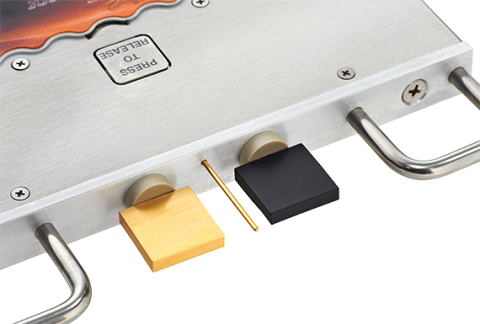Food safety considerations in commercial bakeries are critical to producing safe and wholesome baked goods that meet regulatory standards and consumer expectations. From ingredient handling to packaging, every step of the baking process must adhere to rigorous food safety protocols. For instance, ingredients should be stored in clean, dry, and temperature-controlled environments, and strict protocols for receiving and inspecting incoming ingredients should be in place. These measures are designed to minimize the risk of contamination and ensure the health and well-being of consumers. The experts with Reading Thermal would like to share some of the biggest food safety priorities.
Handling and Storage
One of the primary food safety considerations in commercial bakeries is the proper handling and storage of ingredients. Ingredients such as flour, sugar, eggs, and dairy products must be stored in clean, dry, and temperature-controlled environments to prevent spoilage and microbial growth. Additionally, bakeries must implement strict protocols for receiving and inspecting incoming ingredients to ensure their quality and safety before use in production.
Hygiene
The cleanliness and sanitation of bakery equipment and facilities are critical for preventing cross-contamination and microbial growth. Commercial bakeries must adhere to strict cleaning and sanitation procedures to remove food residues, grease, and other contaminants from equipment surfaces, floors, and workstations. Regular sanitation schedules and approved cleaning agents and sanitizers are essential for maintaining a hygienic environment and preventing the spread of foodborne pathogens.
Temperature and Allergen Control
Baking temperatures must be monitored and controlled to ensure that baked goods reach safe internal temperatures that kill harmful bacteria and parasites. Proper cooling procedures are also essential for preventing the growth of pathogens in baked goods after they are removed from the oven. Bakeries must implement procedures for rapidly cooling and storing baked products to minimize the risk of bacterial growth and foodborne illness.
Allergen control is also a significant concern in commercial bakeries, as many baked goods contain common allergens such as wheat, eggs, milk, nuts, and soy. Cross-contact with allergens can pose a severe risk to individuals with food allergies or sensitivities. To prevent this, bakeries must implement stringent allergen control measures. This includes separate storage, handling, and production areas for allergen-containing ingredients and robust cleaning procedures to prevent cross-contact between allergenic and non-allergenic products.
Accurate Labeling and Packaging
Proper labeling and packaging are essential for communicating important information about allergens, ingredients, and handling instructions to consumers. Commercial bakeries must accurately label their products with allergen information and ensure that packaging materials are safe, clean, and contaminant-free. Additionally, bakeries must implement procedures for traceability and recall in the event of a food safety issue or contamination to quickly identify and remove affected products from the market.
Training and Education
Employee training and education are not just important, they are crucial components of food safety in commercial bakeries. All bakery staff must receive comprehensive training on food safety principles, including proper hygiene, sanitation procedures, allergen control, and temperature management. Regular training sessions and ongoing education initiatives are in place to ensure that employees are not just knowledgeable about food safety protocols, but also equipped to handle potential food safety hazards effectively.
Implementing robust food safety protocols and procedures is not just necessary; it’s a guarantee that your commercial bakery can effectively address food safety considerations. These measures help maintain the highest food safety standards and produce high-quality baked goods that meet regulatory and consumer expectations. Learn how Reading Thermal, with its expertise, can help your bakery meet food safety objectives by calling 610-678-5890 or using our online form.

